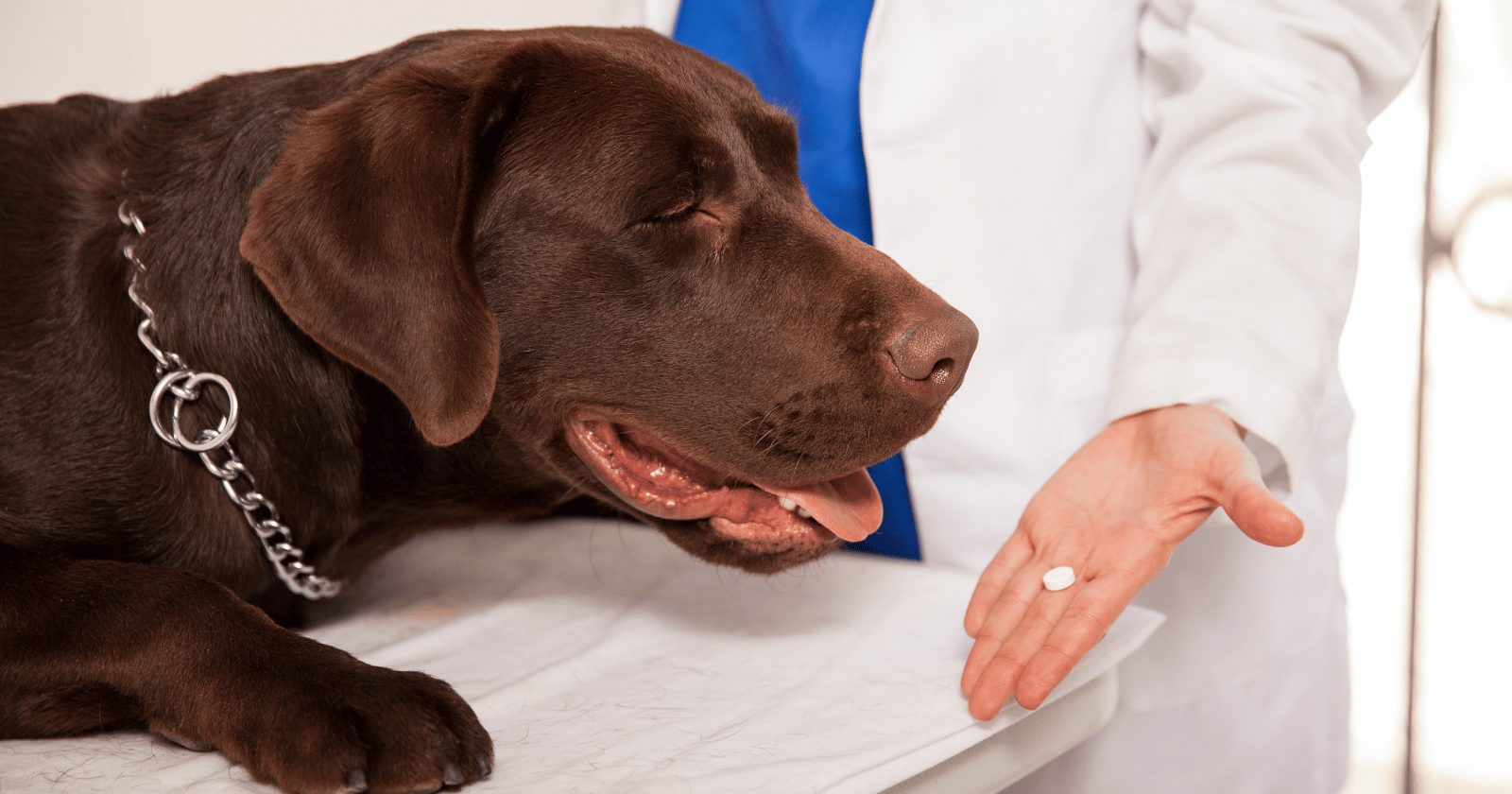There’s a significant difference between guessing what your dog needs for their diet and actually knowing it.
This difference boils down to knowledge.
Guessing is a game of chance, hoping that you’re providing the right nutrients for your dog without really knowing what they need.
Knowing, on the other hand, gives you the power to make informed decisions about your dog’s diet based on solid facts.
Understanding dog supplements and their functions is all about equipping yourself with knowledge to provide the best for your pet.
And savvy pet parents know that there are some key facts that can guide you in making these decisions.
Here are some critical facts you should know about dog supplements and their functions.
1. Not all supplements are created equal
Just like in the human world, there’s a vast array of dog supplements on the market.
And pet parents know the challenge of navigating through this sea of options.
Often, you’ll be faced with a decision to choose between several different brands, each claiming to be the best for your furry friend.
And making that choice can be pretty overwhelming.
Enter the realm of quality differentiation.
Quality differentiation is a concept that acknowledges that not all products are created equal – even if they claim to have the same ingredients or benefits.
Think about it.
It’s similar to choosing between generic and brand-name medications for humans.
While the basic components might be the same, there could be significant differences in effectiveness or safety.
When faced with multiple supplement options for your dog, it’s crucial to remember this concept.
Don’t just go with the first option or the cheapest one – research, compare, and make an informed decision.
2. A personal experience with Omega-3 supplements
Let me share a personal story that illustrates just how crucial understanding dog supplements can be.
A few years ago, my Labrador Retriever, Max, started showing signs of joint discomfort.
He had difficulty getting up after resting and seemed less enthusiastic about our daily walks.
That’s when I started researching and discovered the potential benefits of Omega-3 supplements for dogs.
These supplements are said to have anti-inflammatory properties, which could help alleviate Max’s joint discomfort.
So, I decided to give it a shot and started adding Omega-3 supplements to Max’s diet.
I was careful to choose a high-quality brand and followed the recommended dosage.
Sure enough, after a few weeks, I noticed a significant improvement in Max’s mobility.
He seemed more comfortable and even started showing enthusiasm for our walks again.
This experience taught me the potential impact of proper supplementation in a dog’s diet.
But remember, it’s essential to consult with your vet before starting any new supplement regimen for your pet.
3. The role of probiotics in a dog’s diet

You may have heard about the importance of probiotics in human nutrition, but did you know they play a vital role in your dog’s health too?
Probiotics are live bacteria and yeasts beneficial for your dog’s gut health.
They aid in digestion and help maintain a balanced gut flora, just like they do in humans.
Interestingly, around 70% of a dog’s immune system resides in the gut.
This makes a balanced gut flora crucial for overall health.
Including a probiotic supplement in your dog’s diet can help maintain this balance, support their digestive health, and bolster their immune system.
4. The necessity of vitamins and minerals
Dogs need a range of vitamins and minerals to maintain optimal health.
These essential nutrients perform various functions, from boosting the immune system and supporting growth to maintaining healthy skin and coat.
Now, here’s the catch. While many of these nutrients are usually present in your dog’s regular diet, some may not be in sufficient quantities or could be missing altogether.
That’s where supplements come into play.
Dog supplements can fill these nutritional gaps and provide your pet with the essential vitamins and minerals they need.
5. Supplements aren’t a substitute for a balanced diet
While supplements can be a valuable addition to your dog’s diet, it’s important to remember they aren’t a substitute for balanced, nutritious meals.
Just as how we can’t rely on multivitamins to make up for a diet of junk food, dogs can’t either.
Supplements are meant to complement a well-rounded diet, not replace it.
They are designed to fill in the nutritional gaps, not provide all the nutrition.
So, before you start loading up on all sorts of supplements for your dog, make sure they’re already eating a balanced diet.
Only then can supplements do their job effectively.
6. The impact of supplements on a dog’s quality of life
When we adopt a dog, we don’t just bring a pet into our homes.
We welcome a new member into our family.
And like any family member, we want them to live the happiest and healthiest life possible.
One way to help ensure this is through the right diet and, when necessary, the right supplements.
Imagine seeing your senior dog, who once struggled with joint pain, now running around the yard again after starting a glucosamine supplement.
Or noticing your dog’s coat becoming shinier and healthier after introducing fish oil supplements.
These changes don’t just mean your dog looks better.
They signify a happier, more comfortable life for your four-legged friend.
And in the end, isn’t that what all of us pet parents want?
7. The challenge of introducing new supplements

Let me tell you, introducing a new supplement into your dog’s diet isn’t always a walk in the park.
My friend learned this the hard way with her own dog, Mika.
Mika is a picky eater.
When she first tried to give Mika a joint supplement recommended by her vet, she flat-out refused to take it.
No matter how my friend tried to disguise it – in her food, wrapped in a treat – she wasn’t having it.
She worried about how she could get Mika to take this supplement that was supposed to help her.
It was frustrating and disheartening.
Eventually, after some trial and error, she found a flavored supplement that her dog loved.
Sometimes, it might take a bit of experimentation to find the right one that your dog will willingly take.
It’s always worth it though, for the potential benefits it could bring to your pet’s health.
8. Timing and dosage are crucial
When it comes to dog supplements, how much and when you give them can be just as important as what you’re giving.
Overdosing on certain supplements can lead to adverse effects.
For instance, an excess of fat-soluble vitamins like Vitamin A or D can potentially lead to toxicity.
On the flip side, under-dosing may result in the supplement not being effective.
Then there’s timing.
Some supplements are best given with meals for optimal absorption, while others might need to be given at a different time of day.
Navigating this can seem complicated, but don’t worry.
Your vet will be your best guide in determining the right dosage and timing for any supplements your dog may need.
Always follow their advice to ensure your dog gets the maximum benefit from any supplement they take.
9. Always consult with your vet
This can’t be emphasized enough: always consult with your vet before adding any supplements to your dog’s diet.
Your vet knows your pet’s health history, dietary needs, and any potential risks or contraindications that might exist.
They can guide you on what supplements your dog may benefit from, the right dosage, and the best time to administer them.
Self-prescribing supplements based on internet research or anecdotal advice can lead to unnecessary complications and even harm your pet.
When it comes to your dog’s health, it’s always best to seek professional advice.
It’s all love
The intricate world of dog nutrition and the role of supplements are deeply intertwined with our desire to give our pets the best life possible.
One such connection is the relationship between pet parents and their understanding of dog supplements.
This understanding, fostered through knowledge and research, plays a crucial role in the well-being of our beloved pets.
For a pet parent, knowing the right supplements for their dog can pave the way for enhanced health, longevity, and overall well-being of their furry friend.
Whether it’s ensuring they get the right vitamins, managing joint health with glucosamine, or boosting gut health with probiotics, the underlying knowledge enhances their ability to care for their pet.
In the end, caring for our pets isn’t just about providing them with food and shelter.
It’s about understanding their needs on a deeper level and making informed decisions that contribute to their health and happiness.
Because when it comes to our pets, it’s all about love.












